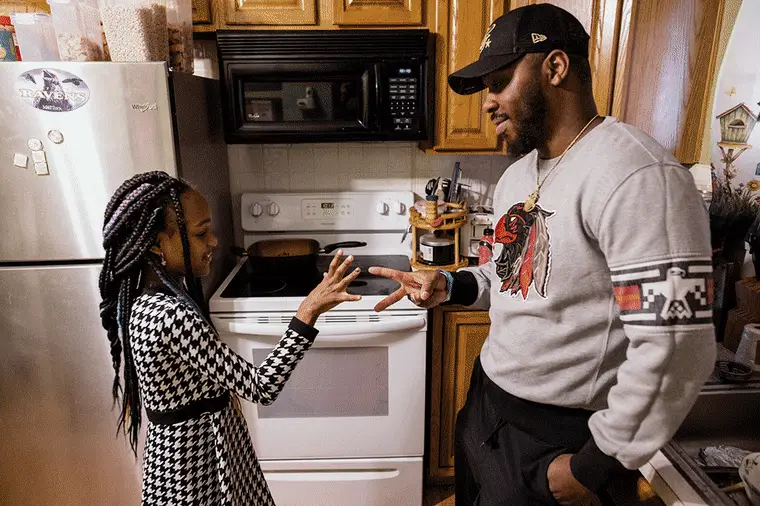
High-income earners struggling to make ends meet tell their stories
With high inflation and rising interest rates on consumer debt, an increasing percentage of workers considered to be high-income earners now say they live paycheck to paycheck.
According to a recent survey by the banking firm LendingClub and the payments news website PYMNTS, 64% of a representative sample of nearly 4,000 U.S. consumers now say they are just getting by. That's an increase from 61% the previous year.
Among the new cohort of people who say they are newly living paycheck to paycheck, 86% pull in more than $100,000 annually, the survey found. Given that the median household income in the U.S. is $70,784, the survey shows the soaring cost of living in America is catching up to even more well-off U.S. residents.
“The effects of inflation are eating into every American’s wallet, and as the Fed’s efforts to curb inflation drive up the cost of debt, we are seeing near-record numbers of Americans living paycheck to paycheck,” said Anuj Nayar, the financial health officer at LendingClub.

Economic precariousness is nothing new in America. Since 1976, the percentage of respondents to a Gallup survey who said their finances were worse off than they were a year ago has been over 20%, except for only one year: 1999.
And the percentage of people saying their finances were better than they were a year ago has never surpassed 60%.
But this year, the percentage saying their finances were worse than they were a year ago hit 50%, the highest since the Great Recession. It has been rare for half or more of Americans to say they are worse off, Gallup says.
Homeownership feels out of reach
With inflation still well above the level preferred by the U.S. central bank, more Americans than ever say they are feeling their wallets pinched — even those who are more financially comfortable.
They include Devin Parker, 34, a Marine veteran who deployed to Iraq and now works as a logistics supervisor at AgCo, an agricultural firm in Maryland. With his disability benefits included, Parker earns about $102,000 annually. But as his expenses accelerated last year, he decided to radically transform his lifestyle. Parker moved back into his childhood bedroom in his grandmother's home, with his 8-year-old daughter in tow.
"There's been a lot of humility," Parker said.
Other changes include almost never going out to eat, he said.
"Most everything is cooked from home now."

Parker has been investing, and he said he managed to earn about $15,000 over the past six months from an initial investment of $2,000 and by investing $500 from his paycheck every two weeks into his employer's stock, as well as index funds.
Like many his age, Parker — who lives in Windsor Mill, a Baltimore suburb — is saving up for a house. He plans to first invest in real estate before he settles down into a place of his own again.
Homeownership is a common goal expressed by other high-income earners reached by NBC News, although it's a goal they feel will be difficult to achieve. Josh Rodriguez, 27, lives with his wife and two children outside Houston. He makes as much as $14,000 a month earning commissions as a Realtor and as part-owner of a real estate brokerage firm.

Thanks to inflation, he said, Rodriguez’s weekly grocery expenses have climbed from about $180 to more than $300.
So now, he said, he and his wife make trips to two different grocery stores to try to save money on fresh food. The couple have also postponed vacations to Mexico and Colorado.
"With the kind of money we make, it really shouldn’t be like that," Rodriguez said, adding that his priorities have changed as they aim to save money for a house.
"We’re not suffering in any way," Rodriguez said, "but it's as clear as night and day what the spending power of $10,000 a month has turned into."
Rodriguez also noted a generational shift. His father, a mortgage loan officer, also made about $10,000 a month and was able to take his family on skiing and snowboarding vacations.
"I'm making more than that, but I have less spending power," Rodriguez said.
Home prices have risen faster than wages
It's not an illusion. It is indeed more difficult to buy a home today, even for some people who make a lot of money. Over the past four decades, home values have increased much faster than incomes.
The inflation-adjusted median household income in the U.S. has climbed by 27%, from about $56,000 in 1984 to about $71,000 in 2021. By comparison, the inflation-adjusted median U.S. home value has climbed by about 102%, from about $232,000 in 1984 to nearly $468,000 in the last quarter of 2022.

Marissa Cameron, 36, makes more than $9,000 a month before taxes as a communications contractor for the Veterans Affairs Department. She said she has been trying to save up to buy her own home for four years but increasingly feels that goal is falling out of reach.
"I can’t put away as much and build as much of a nest egg, because that process is expensive,” she said.
Cameron said she struggles with finding an optimistic outlook for her finances, especially when compared with her parents. Her father was a satellite engineer and earned a pension after having spent more than two decades in the Air Force.
"They're boomers and are very solid in savings and having liquid cash available," Cameron said.
Financial analysts have preached the importance of stabilizing personal finances before buying property. For many of those experts, that means building an emergency savings fund, paying down debt and saving up that down payment separately.
But even for some who earn more than the median household income, the first of those — building up emergency savings — is a hurdle.
For Kim Butler, 37, of Orlando, saving for an emergency fund means making lifestyle changes, like moving to a cheaper apartment, growing some of her own food and cultivating aloe plants for use in her hair.

Butler, who works in digital marketing, said that she has dramatically cut back on going out and that she even lights her apartment with homemade candles to save on electricity. She said her electric bill has gone down by about $30 per month since she started using candles more. She also sells the candles she makes online.
"I use a lot of candles. Instead of buying, I just make them," she said. "Instead of having different lamps in my apartment, candles is it for me."
While Butler makes less than six figures, earning about $86,000 a year, she is single and doesn't have kids to support. She wants to save to buy a place but has resigned herself to the reality that such a goal may never materialize.
"It doesn't seem like that's going to happen if I go for a traditional loan," she said.






